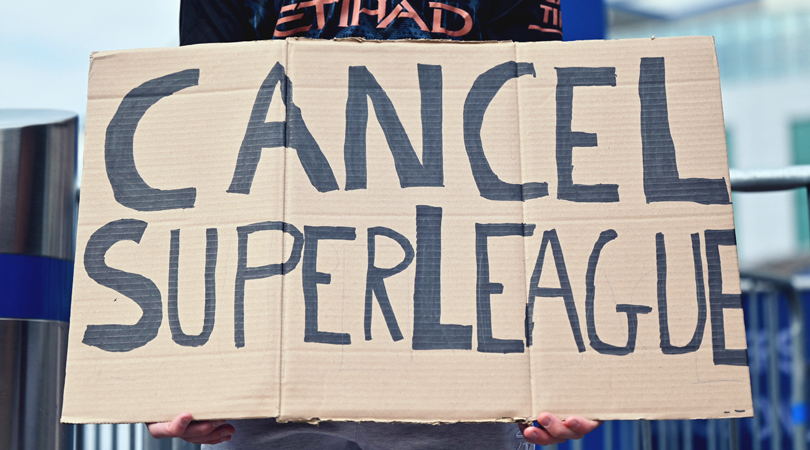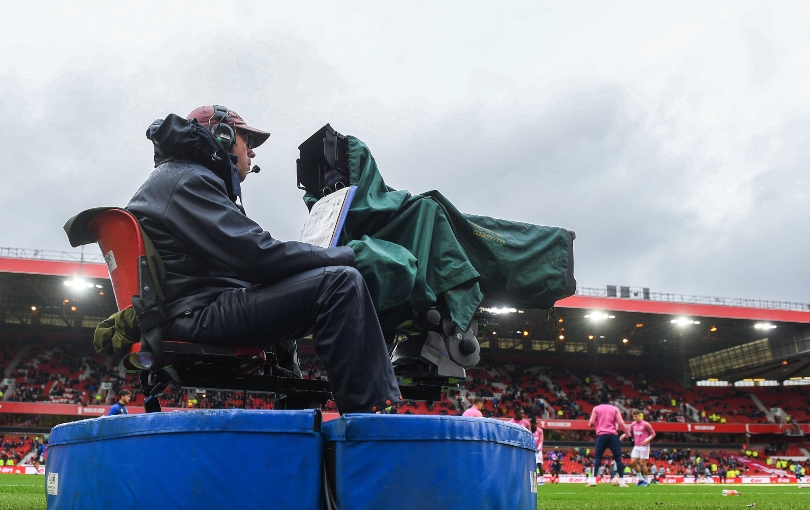European Super League return? Everything you need to know about the 'Unify League’
The European Super League is back on the agenda and there have been amendments since its last iteration

Following a breakdown of the original project in 2021, the breakaway European Super League is back under a new name with a different format.
Organisers A22 have submitted their proposal to UEFA and FIFA for the new competition - named 'Unify League' - following rulings by the European Court of Justice that setting up a new league is theoretically legally sound.
Here, we break down the plans that have been presented to the official bodies…
The European Super League’s new structure as the Unify League

The new format for the Unify League would see 96 European teams competing across four leagues: Star, Gold, Blue and Union — one additional league and 32 more teams than the original 2021 proposal.
Both the Star and Gold leagues — the top two in the structure — would contain 16 clubs each, split off into two groups of eight. The bottom two leagues, Blue and Union, would each have 32 teams, pooled off into four groups of eight.
In the league phase, each club will play every other club in their group, seven home and seven away matches, with the top four (in the case of the Star and Gold leagues) or the top two (in the case of the Blue and Union leagues) qualifying for the knockout stages. Simple, right?
The new format means that there could be space for up to as many as 10 English teams every season across the four ‘Unify’ leagues.
Get FourFourTwo Newsletter
The best features, fun and footballing quizzes, straight to your inbox every week.
Does the Unify League feature promotion and relegation?

The blueprint for the first 20-team edition of the competition, released in 2021, featured founding members who were immune from relegation, with the lack of ‘fair competition’ a key sticking point for those who opposed the plan.
Organisers appear to have taken that feedback on board as the new Unify League would have a system which decides who qualifies based on annual domestic performance — something which A22 says keeps the competition under UEFA’s definition of open competition.
Will the Unify League proposal impact women’s football?

Yes, A22 have also devised a plan for a women’s competition, following the same format but with just the top two divisions, the Star and Gold leagues.
That means that 32 teams would be involved in total, 16 in each league, grouped off into two pools of eight.
How would fans get to watch the action?

One of the key proposals from the 2021 round of negotiations to get fans onside, and one that has been kept through in this update, is making the games free to view for watchers at home.
Matches would be streamed via a free platform called Unified and would contain adverts.
When would the Unify League be happening?

The league phase would begin in September and run through to April, with some outlets reporting that a start date of September 2026 is being targeted.
There are a number of tough obstacles for A22 to overcome, however, before any concrete plans can be drawn up.
Presuming they overcome the strong fan sentiment that toppled the last attempt — which is a big leap in itself — it still requires ratification from a number of governing bodies.
Get through those significant hoops and, although the European Court of Justice ruled a competition of this type could not prohibited legally, there are the laws of the individual countries themselves to contend with — not least for English clubs, with Prime Minister Keir Starmer currently urging a bill through parliament which would put in place laws preventing them from joining such breakaway competitions.

Isaac Stacey Stronge is a freelance football writer working for FourFourTwo, Manchester United and Football League World. He has been a season ticket holder at Stockport County throughout the Hatters’ meteoric rise from the National League North to League One and is a die-hard Paddy Madden fan.
